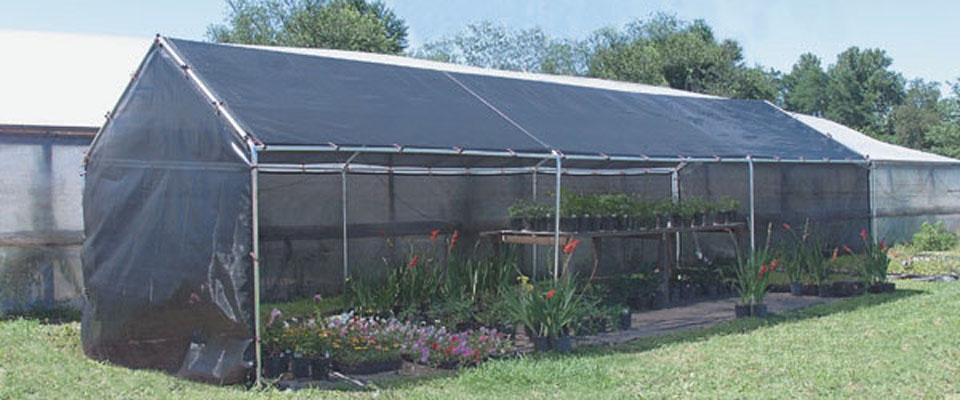Shade Solutions for a Happy Harvest
Just like you can get burned from being in the sun too long, so is the case for plants during the summer months. Because of this, shade material should be a top priority after getting your greenhouse, hoop house, retail nursery or field growing underway. When purchasing shade material, you should consider what you are trying to accomplish, whether it is controlling light, saving energy, controlling temperature or controlling humidity.
Vegetables vary in their sensitivity to heat and light. Remember, reducing temperature and reducing light intensity are two separate concepts. Too high of a temperature can negatively affect seed germination, flower bud development and, more importantly, fruit set. Some examples of this include uneven or poorly shaped heads of broccoli and cauliflower, bitter tasting lettuce, bolting spinach, slow fruit production and even a stop to fruit production in certain tomato varieties. Ideally, you’ll want to lower the temperature, while also keeping light level high, in order to boost production in vegetable crops.
Many perennials and shade-loving varieties of nursery stock can withstand full sun during the winter months, but they need shade protection during the other seasons. Shade-adapted and tropical plants will also require different levels of light reduction.
Shade density is determined by the percentage of light blocked. Material is available in a wide range of percentages – usually 30 percent to 90 percent – to suit the unique needs of the plants, flowers and crops.
When shopping for shade material, you’ll easily be able to find both woven and knitted polyethylene material. The knitted shade is typically superior to the woven material, as it is non fraying, rip stop and carries a longer life expectancy. Shade material also tends to be rot and mildew resistant, does not become brittle and is water permeable, and even though it is ideal for diffusing light, shade material also offers a high degree of ventilation.
Another popular type of material that is widely used in southern climates is aluminet reflective material, which is made from metallic HDPE. This material is strong and durable, and it does not breakdown outside. It helps to create an optimum growing climate, because it reflects the sun’s radiation, rather than absorbing it. Using this material can help to achieve low daytime temperatures and energy savings, because it keeps crop temperatures close to ambient.
Using shade material is a quick and easy solution to protecting plants during the summer months, and it can also be taken down during the off season. Don’t get burnt this summer by letting your shade requirements become an afterthought – make them a priority. It is a proven solution that can help protect your plants and help you get the most out of your harvest.

